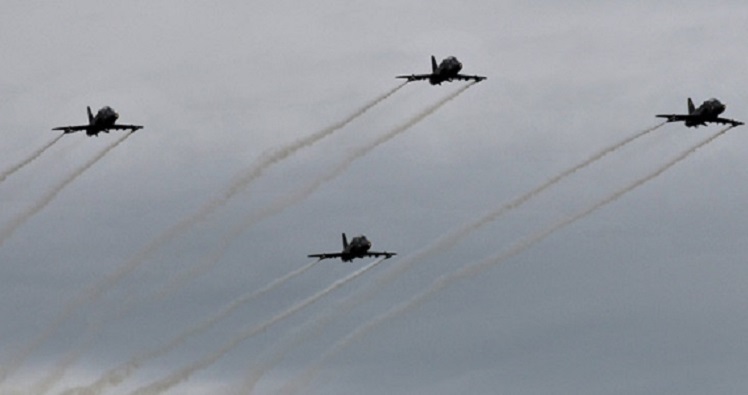Georgia accuses Russia of violating conditions of Open Skies Treaty

Signed in 1992, the Open Skies Treaty permits each state-party to conduct short-notice, unarmed, reconnaissance flights over the others’ entire territories to collect data on military forces and activities. Photo: puolustusvoimat.fi.
Georgia has accused Russia of systematically violating the conditions of the Open Skies Treaty and politicising the agreement for several years.
Signed in 1992, the Open Skies Treaty permits each state-party to conduct short-notice, unarmed, reconnaissance flights over the others’ entire territories to collect data on military forces and activities.
Since 2010, Russia has been trying to use this agreement as a tool to legitimise the illegal recognition of Georgia’s occupied territories. Back in 2010, the Russian Federation restricted surveillance flights over the occupied territories (Tskhinvali and Abkhazia), claiming that the so-called countries are not members of the treaty and therefore have different conditions defined by the agreement with them. The purpose of this action was to legitimise the recognition of Georgia’s occupied Abkhazia and Tskhinvali regions”, reads the official statement of the Georgian Foreign Ministry.
The ministry has announced that Georgia had been consulting with its partners for nearly two years in order to persuade Russia to return to the full implementation of the agreement.
After 2012, Georgia neither accepts Russian flights, nor conducts surveillance flights on Russian territories… Russia itself tries to use the agreement for its own political purpose”, reads an official statement of the Georgian Foreign Ministry.
The ministry states that unlike Russia, Georgia is fully responsible for fulfilling its international obligations and adheres to the norms and principles of international law.
On May 22, the US announced plans to withdraw from the 35-nation Open Skies Treaty, which allows for unarmed surveillance flights over member states, saying that Russia refused to adhere to the treaty which entered into force back in 2002.
The US provided Georgia and its occupied regions as an example of how Russia violates the conditions of the treaty.
Responding to the issue, Georgian Foreign Minister David Zalkaliani said that Georgia suspended the treaty to Russia in 2012 as Russia ‘incorrectly interpreted all international agreements, including the treaty, following the Russia-Georgia 2008 war.'
Zalkaliani said that Georgia continues consultations with other signatories of the treaty on how the country (Georgia) might be involved in the treaty in future.
 Tweet
Tweet  Share
Share